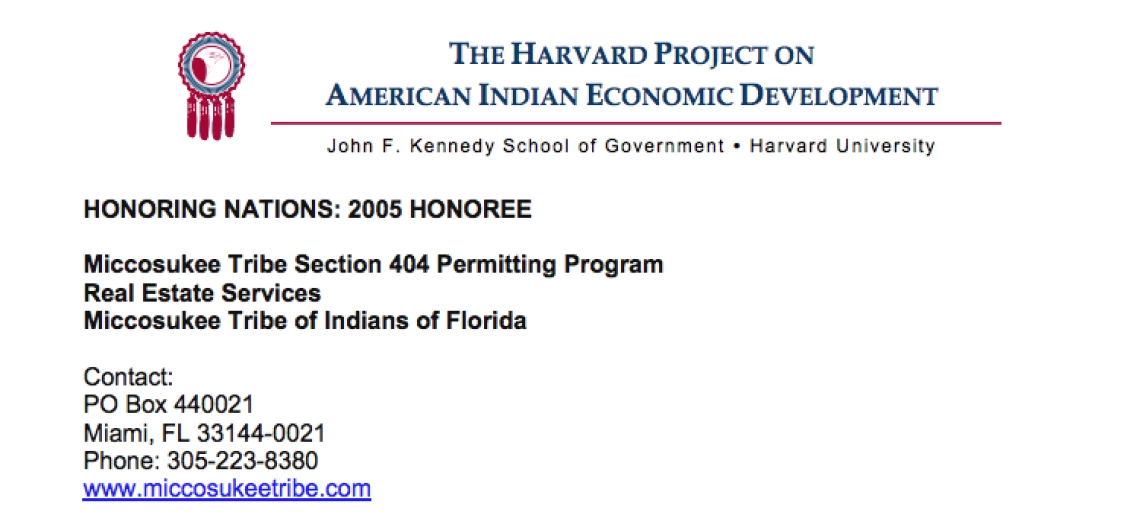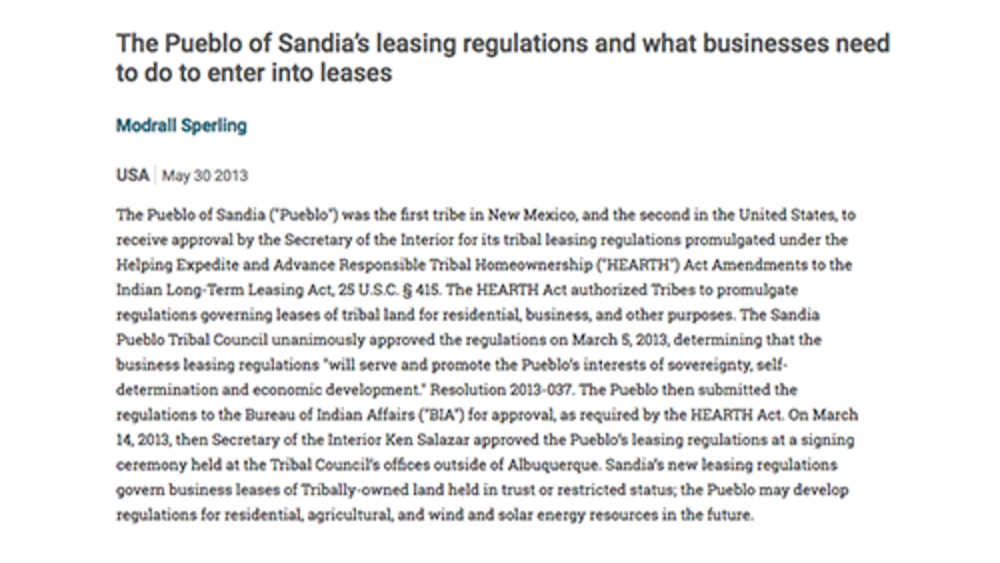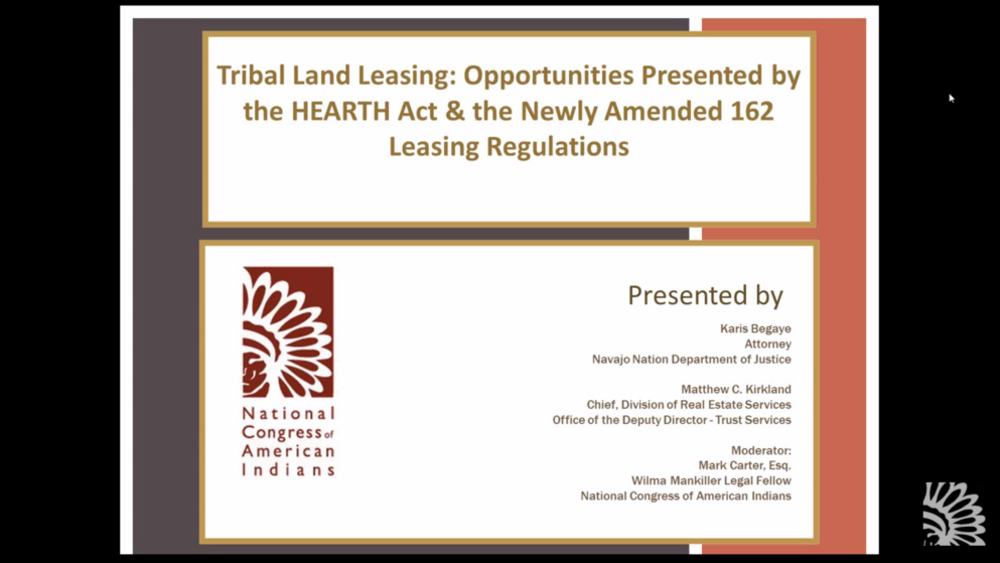The reservation lands of the Miccosukee Tribe lie largely within the Everglades National Park. Development on these lands is subject to elaborate regulations by a host of federal agencies that hindered development and other uses of their lands by the Miccosukee people, including the building of traditional dwellings and family gardening. Tribal citizens had to negotiate a time-consuming, regulatory maze almost every time they engaged in land-use activities. With the Section 404 Permitting Program, the Tribe set out to streamline the regulatory process and, more importantly, to win for itself a stronger role in regulatory activity. By contracting on-reservation authority from the US Environmental Protection Agency to issue land permits, enforce environmental codes, and manage permit violations, the Miccosukee Tribe is not only enabling its citizens to improve their own homes and engage in traditional cultural activities, but it is also expanding the reach of the Tribe’s own governmental powers.
Additional Information
"Miccosukee Tribe Section 404 Permitting Program". Honoring Nations: 2005 Honoree. The Harvard Project on American Indian Economic Development, John F. Kennedy School of Government, Harvard University. Cambridge, Massachusetts. 2006. Report.



